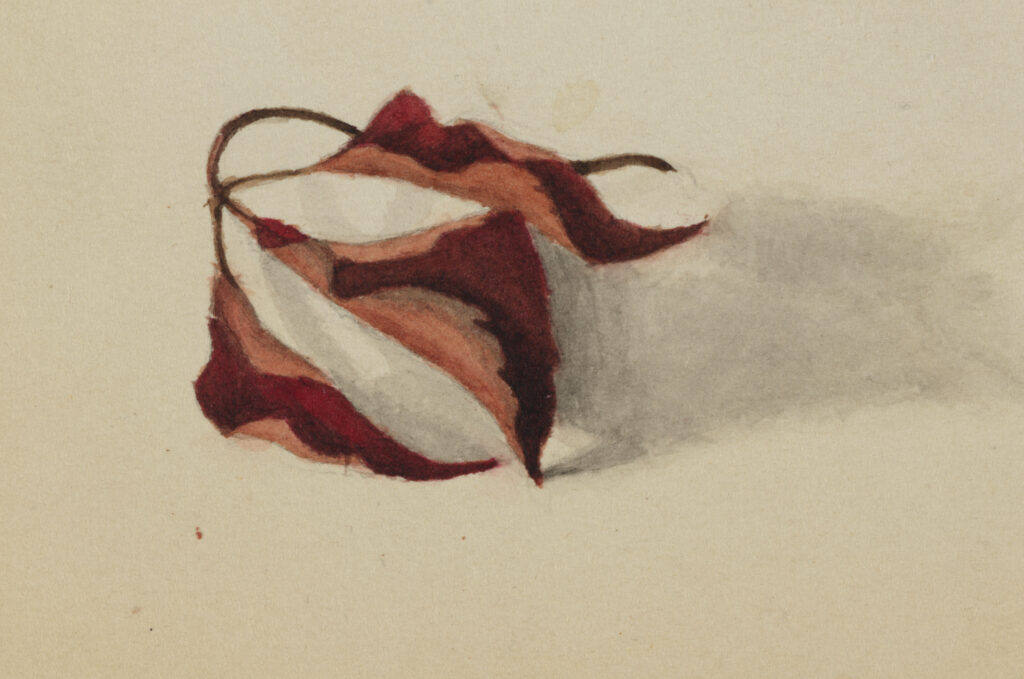The Dead Leaves of Winter
By M. M. Folsom
Annotations by Josh Benjamin

The dead leaves of winter
Look all out of place
’Mid the merry surroundings
Of spring’s budding grace.
Tossed hither and thither,
They little reck whither;
A blot and a stain on the sunshining weather.
The dead leaves of winter!
Ah! cutting and cold
Were the rough winds that severed
The last tender hold;
Thrown withered and crushed
Where the wild torrent rushed,
’Neath the nest of the singer whose songs are aye hushed.
The dead leaves of winter!
They call to my mind
The outcasts, the waifs
And the wrecks of my kind:
No kind word e’er spoken—
Soulsick and heartbroken—
Of hope in the world not a tithe or a token.
Folsom, M. M. “The dead LEaves of Winter.” The Golden Argosy 3, No. 24 (May 1885): 190.
Contexts
Late 19th century industrialization in the U.S., which developed so rapidly that regulations to protect workers were inadequate, led to a poor quality of life for many industrial workers and the eventual formation of labor unions. See the Resources section below for additional information.
From the University of Pennsylvania Penn Libraries Online Books Page for The Argosy, which also has links to digitized versions of the complete issues:
“The Argosy was an American fiction magazine published in the 19th and 20th centuries. The Argosy was founded in 1882 by Frank Munsey as ‘The Golden Argosy’, and was originally a children’s newspaper. It adopted the name The Argosy in 1888, and went to a pulp magazine format in 1894. It absorbed Railroad Man’s Magazine in 1919 and for a short time was titled ‘Argosy and Railroad Man’s Magazine’. It merged with ‘The All-Story’ in 1920, and published as ‘Argosy All-Story Weekly’ for much of the 1920s, but resumed the shorter ‘Argosy’ name after the launch of a new ‘All-Story’ in 1929.”
Definitions from Oxford English Dictionary:
aye: (a) Ever, always, continually; (b) at all times, on all occasions. (Now only in Scottish and northern dialect).
reck: Care, heed, consideration. Chiefly in negative contexts. (Now archaic and literary.)
tithe: A grant; a favour, a concession.
Resources for Further Study
- The Library of Congress primary source page for the Rise of Industrial America, 1876-1900
- The origins of the American labor movement in the 19th century at History.com